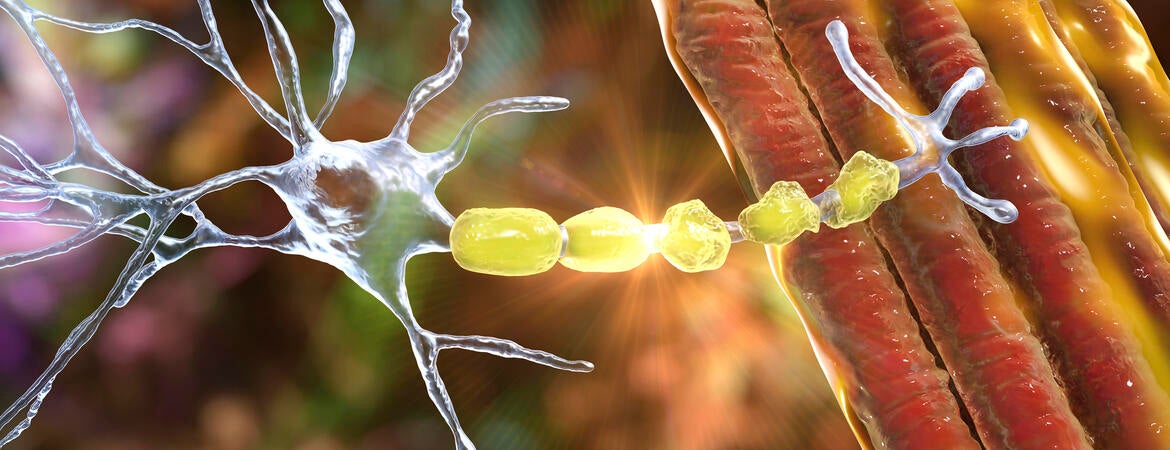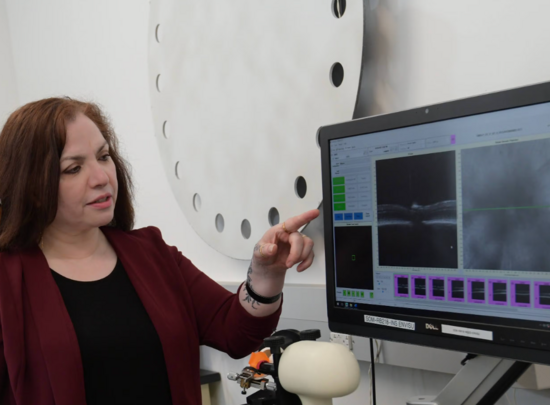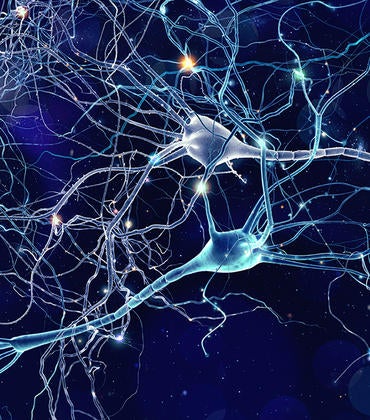
A preclinical study by biomedical scientists at the University of California, Riverside, has shown why some people with multiple sclerosis, or MS, also suffer from seizures — a debilitating complication that can worsen cognitive outcomes and accelerate disease progression.
Published in Neurobiology of Disease, the research identifies a strong connection between demyelination — the loss of the protective myelin sheath coating the axons of neurons — and seizure activity. Using a mouse model of MS, the study shows that as myelin deteriorates, especially in the hippocampus, seizures become more likely. This brain region is essential for memory and learning and is a known hotspot for seizure activity.
The findings suggest new opportunities for targeted treatments that address the root cause of seizures in MS without suppressing overall brain activity. Current seizure medications often suppress overall brain activity, leading to side effects like fatigue and cognitive dulling.

“About 4 to 5% of people with MS develop seizures,” said Seema Tiwari-Woodruff, a professor of biomedical sciences in the UCR School of Medicine and lead author of the study. “It has been an understudied area, but these patients tend to experience worse cognitive outcomes and faster disease progression. Understanding what’s happening in the brain is crucial.”
MS is a chronic autoimmune disorder that damages myelin, leading to symptoms such as vision issues, fatigue, coordination problems, cognitive decline, and, in some cases, seizures.
To simulate progressive demyelination, the researchers used the toxic cuprizone diet mouse model. After 12 weeks of demyelination, nearly 80% of mice showed seizure activity, up from 40% earlier in the disease process. Brain recordings and behavioral assessments confirmed this increase.
“As demyelination progressed, levels of glutamate, an excitatory neurotransmitter, rose, while GABA, the brain’s main inhibitory neurotransmitter, appears to decline,” Tiwari-Woodruff said. “This imbalance makes the brain more excitable — a hallmark of epilepsy.”
The study highlights the hippocampus as a key area affected. Inhibitory neurons in this region, some of which are myelinated, appear especially vulnerable.
“Myelin doesn’t just speed up signal transmission; it also helps maintain neuron health,” Tiwari-Woodruff said. “Damage to GABA-producing neurons in the hippocampus due to demyelination could explain seizure susceptibility in MS.”
Unlike traditional epilepsy models that rely on brain damage to trigger seizures, this study offers a more accurate model based on demyelination-induced seizure activity.
“We’re not destroying brain tissue,” Tiwari-Woodruff said. “We’re modeling the slow myelin loss that occurs in MS. That makes it a powerful tool for future research.”
The findings pave the way for targeted treatments.
“Now that we know glutamate rises and GABA drops, we can investigate the specific cells involved,” Tiwari-Woodruff said. “We’re particularly interested in astrocytes — support cells that normally remove excess glutamate from extracellular space. If they are impaired, glutamate builds up, brain signals go unchecked, and seizures occur.”
Glutamate is essential for brain function, so treatment must be precise.
“Blocking it completely would shut the brain down,” Tiwari-Woodruff said. “We are aiming for targeted modulation, not blanket suppression.”
The research offers new hope for people living with MS.
“Many in the MS world don’t understand why they’re having seizures — it’s not a widely known symptom,” Tiwari-Woodruff said. “Our study offers an explanation, which is the first step toward better treatment.”
The research team is now investigating changes in neural circuits and receptors in the hippocampus and how astrocyte dysfunction contributes to seizure risk. The team’s comparisons of mouse and human brain tissue are already underway.
“If the same transporters and receptors are affected in humans, they could become clear therapeutic targets,” Tiwari-Woodruff said.
The research, conducted in collaboration with neurosurgeon Devin Binder, a leading epilepsy expert at UCR, was supported by institutional grants and funding from the National Institute of Neurological Disorders and Stroke. Findings will be shared with the National MS Society to inform the broader MS community.
Contributors to the study include first co-authors, graduate student Alyssa M. Anderson and recent master’s graduate Moyinoluwa Ajayi, along with Carrie R. Jonak, Shane Desfor, Joselyn Soto, Adrian Akhuetie, Devang Deshpande, and Andrew Lapato.
The title of the paper is “Demyelination-induced glutamatergic imbalance mediates hippocampal hyperexcitability.”
Header image credit: Dr_Microbe/iStock/Getty Images Plus.

Speak Up for Science!
Science makes our lives better. Now it’s at risk. Join us in asking Congress to reject drastic cuts to research.



